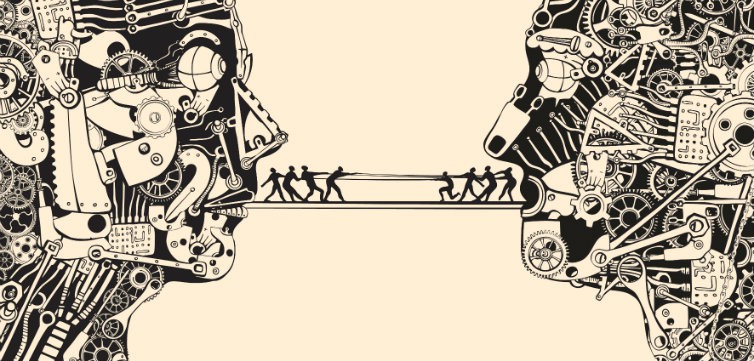By Jaeben Watkinson
This article is a response to the opinion piece by the opinions editor Amber Wiles. Reading this, this is in no way meant to be a personal attack on Amber or her character, nor is this is an attempt to destroy her ‘facts and logic’. This article is simply an attempt to argue the other side in the hopes of creating a conversation about something incredibly important. Therefore, it’s important to read her article before or after you read this one if you wish to read the opposing side. You can read that article here: http://hullstudentmedia.co.uk/2021/02/01/why-publishers-have-a-responsibility-to-censor-authors/
Let me tell a story first. One of the perks about being autistic is being able to have intense interests, these can vary from focussing on one thing very intensely to branching out in multiple things. One interest of mine between the ages of 17-18 was totalitarian regimes and structures. because of this, I read books that would no doubt raise some eyebrows, these included Mein Kampf, The Doctrine of Fascism, The Communist Manifesto, Das Capital and The Origins of Totalitarianism. The first four of these books support disgusting, appalling, and dangerous ideologies that caused the deaths of tens of millions, if not hundreds of millions of people throughout the twentieth century. I wouldn’t consider myself an expert on this in any way, as it was some time ago, but reading these books have helped shape my own libertarian views and I think has made me a better person for it. The reason I am writing about this is because, while these books may be considered ‘dangerous’ and ‘harmful’, having them in circulation does still possess a very important purpose. After all, those who fail to repeat the past are condemned to repeat it.
On the controversy surrounding David Starkey, while admittedly I’m not as familiar with his ‘history of anti-Semitism’, I welcome Amber or anyone to present me with material that goes into this. I agree that I did not like what he said during his Darren Grimes interview, but should his wider contribution to education and history not be considered when thinking about why he was not dropped sooner? I remember learning more about history through him, his books and television specials more than any history lesson at school. I think the wider contributions that someone has made in society should be thought about, whether that’s people in the present, or indeed in the past. George Orwell was homophobic, Dickens was possibly anti-Semitic, and Churchill was a racist, there isn’t any doubt that these figures may have held other views that thanks to our ability to look back on history with hindsight, we would regard with disdain. Should these figures from history receive the same punishment?
Moving onto Jordan Peterson, who I have written about previously, I remember reading a Vice article about this and laughing when I heard that employees from Penguin Random House were screeching and crying about his next book being published, as it very well should be. Describing his views on gender, Islamophobia, and white privilege as ‘dangerous far-right rhetoric’ is incredibly menacing. If you’re going to call someone or their views ‘far-right’, you better have some damn good evidence that supports that. As someone who has been threatened and assaulted because people have tried to throw that label on me, I don’t want anyone to go through what I have simply because they don’t want to agree with a narrative that the left like to try and push, and I say that as someone from the left. The topics of gender and white privilege are things that do need to be discussed and talked about instead of just trying to push them as fact. Peterson simply attempted to add his two cents to the jar. He said time and time again that he would use the pronouns that someone would wish him to use and that he wants to treat everybody with the respect and dignity they deserve, and I’ve seen more evidence of him doing that than anything else. As far as islamophobia is concerned, once again, I’ve never seen him say or do anything that proves that he is bigoted or hateful towards someone for their religion. At the very worst I’ve seen him be mildly critical of it, as he should be because I think that we should be critical of all religion and the kind of authoritarian societies that these texts wish to create. Unless Amber can show me a video of Peterson using derogatory language and slurs towards a Muslim for their faith, I’m inclined to think otherwise. Penguin Random House are right to publish his book and seeing them refuse to bow down the far-left is a welcome breath of fresh air.
You have to stand up for the free speech of those you don’t agree with and those you find disgusting, otherwise, you are not in favour of free speech at all.
Moving into the dangerous territory of hate speech, a term that sounds Orwellian in itself, while I completely agree that people can speak hatefully towards one another, I think that’s something that we’re all guilty of in some way, shape or form, whether it’s to someones face or behind their back. Therefore to define it and at worse legislate it, is incredibly dangerous. Aside from directly inciting violence or instances such as yelling fire in a crowded theatre when there is none, which are active participations of the commission of a crime, no speech should ever be restricted, simple as that. This is why I don’t believe in the term ‘hate speech’.
I completely agree with Amber that words have some measure of power, of course they do, but they only have the power that we, as individuals, allow them to have. These words are blots of ink on paper, and pixels on a screen, they cannot physically hurt you. As summarised in my first Hullfire article, different people will get offended over different things, therefore it is ultimately pointless and redundant to try and legislate against people who say the wrong thing.
One thing I find amusing is that ‘liberals’ (who seem to be undercover Marxists who have hijacked the label of liberalism) are all for encouraging an open, tolerant society but as soon as someone does or says something that they don’t like, they are immediately ostracised and kicked out of mainstream society, such as the case of Gina Carano. A strong, independent, and free-thinking woman who was fired by Lucasfilm and dropped by her agency because she dared to point out the danger of demonising someone because of their political views. Granted, while I do think comparing it to the treatment of Jewish people in WW2 may be a bit extreme, her point still stands, especially when taking the past five or six years into account. There is some level of hypocrisy on Disney’s part, considering that they filmed the live-action adaptation of Mulan in the same province where the Chinese government are committing crimes against humanity against the Uyghur population.
Publishers are privately owned businesses, it is ultimately down to them to decide what they do or do not publish, we live in a beautiful capitalist system whether there is a plethora of choice in literature, there’s even dinosaur erotica out there for god’s sake (don’t ask me why I know that). But if you willingly go out of your way to climb on the back of your toilet, look through the neighbour’s window and you are then disgusted and horrified by what you see, there’s nothing anybody can do – I wish I could say I thought of that comparison myself (credit to Christopher Hitchens). Not too long ago, I saw a post on Facebook accusing E.L James of trivialising abusive relationships in her Fifty Shades trilogy, if you don’t like the content that someone makes, whether that be in literature or any other art form, don’t consume it. do not try and stop other people from reading it, and possibly enjoying it just because it does not agree with your own subjective tastes.
In her final paragraph, Amber begins by rewording the classic argument against freedom of speech, that ‘freedom of speech does not mean freedom of consequence’. I agree that it does not mean freedom of social consequences, if you, the reader do not like what I have written in this article, you are more than welcome to get in touch with me and tell me why you don’t agree, in fact, I welcome it because I think it’s better to be wrong about something than it is to be right because that means I won’t be chasing a falsehood.
Amber writes that ‘if it causes harm and presents the possibility to increase fear and pain to the community, then it is hate speech’, by using that argument, as an atheist, what is stopping me from saying that what is said in the Bible, Torah, and the Quran to be grossly offensive? I could argue they encourage the development of authoritarian theocracies that Hitchens has described as a ‘celestial North Korea’ that seeks to dictate when people can eat, what they eat, what they wear, who they can marry and love, and even think. Not to mention encouraging and inciting violence against those who refuse to go along with it. Should these texts be restricted? What is to stop someone who has read Amber’s article, who willingly perceives that it could increase fear and pain, to report her for hate-speech?
We should be encouraging people to say and write about what they think because forcing them underground does not solve the problem. As mentioned in my article discussing Darren Grimes and his investigation, it is the equivalent of children sticking their fingers in their ears because they hear something that they do not like. At least by allowing people to voice and write their opinions, we know who they are, what they think, and why they think it. The pros of allowing this freedom to everyone, yes EVERYONE, far outweigh the cons. I want diversity in publishing, this includes racial, social, intellectual, and cultural. I don’t want writers, authors and journalists only writing about a select few things, because that leads to limiting what people can think, and risks the chance of people who want to talk about other issues going to the fringes of the political spectrum because they will be the only ones talking about what they consider to be important. Because of this, I think if publishers bear any form of responsibility, they have the responsibility of publishing as many opinions and stories as possible, and I am willing to bet that when people look back on our time in the year 2321, the publishers of today would be celebrated for not restricting opinions and letting them spread, be addressed, discussed, and talked about.
Cover Image Credit: https://www.thefire.org/free-speech-not-just-a-diversion-from-campus-protests/


